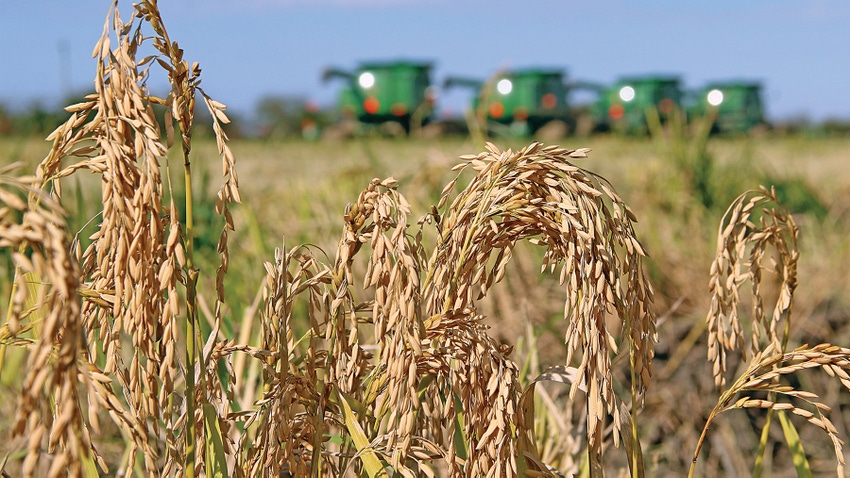March 7, 2023

While Texas rice growers face a stiff challenge to fend off yield- and profit-limiting kernel smut, Texas A&M AgriLife is quickly working to find a cure as part of a national collaborative research effort.
Texas A&M AgriLife Research scientists and Texas A&M AgriLife Extension Service specialists have joined forces with lead institution Louisiana State University in a project funded by a U.S. Department of Agriculture–National Institute of Food and Agriculture grant. The project goal is to improve rice farming sustainability and profitability.
Collaborating institutions include Clemson University, Mississippi State University, Texas A&M AgriLife and the University of Arkansas Agricultural Experiment Station.
AgriLife Research and AgriLife Extension are utilizing $914,850 of the $10 million USDA-NIFA grant as part of an overall project to improve the sustainability and profitability of rice farming through research innovations, implementation of new findings and education.
“These types of capacity-building grants lay the foundation for future knowledge and solutions,” said Lloyd Wilson, director of the Texas A&M AgriLife Research and Extension Center at Beaumont. “Increasing genotypes and discovering resistance to biotic and abiotic stresses sets the stage. Also, we could discover a new chemical compound for suppression. There’s a whole slew of positive applied spinoffs. That’s the beauty of these agencies and institutions working together.”
Texas A&M AgriLife team tackling rice smut
The research team consists of Xin-Gen “Shane” Zhou, AgriLife Research plant pathologist, Beaumont, and Young-Ki Jo, plant pathologist and AgriLife Extension specialist, Bryan-College Station, both with the Texas A&M College of Agriculture and Life Sciences Department of Plant Pathology and Microbiology. The project duration is for four years.
Rice smut is a fungal disease that produces black spores and reduces grain quality, Zhou said. In 2021, thousands of Texas rice acres suffered from kernel smut, resulting in a significant reduction in rice yield and quality.
“We still don’t understand the fungus really well,” Zhou said. “We don’t know the biology of the fungus, and we don’t have an inoculation method to study this pathogen. Therefore, one of the objectives of this project is to understand the genetic diversity and virulence of the kernel smut fungus and develop a reliable and effective inoculation method to induce the development of the disease. Built on the results of these studies, we will screen and identify rice germplasm for resistance to kernel smut.”
Zhou said 2021 was a very wet year and resulted in above-average cases of kernel smut in rice fields. Farmers had to double the number of fungicide treatments than a typical year to reduce the loss caused by the disease.
Researchers will be looking to develop more effective fungicide treatment options, he said.
“The fungus can survive in fields for several years, so it has much, much staying power,” he said. “We also want to get a better understanding of fungicide applications to increase efficacy.”
Sustainable agriculture systems
The grant is part of a larger effort to improve agriculture sustainability.
“Instead of one focus, this grant is a holistic approach to finding sustainable solutions for agriculture for many years down the line,” Jo said. “Not many people know how much rice is produced in Texas, but we are the fifth largest rice exporter in the global market. We are searching for solutions of how we are going to sustain over the next 10 years, given various challenges from increasing input costs to reduced farmland and climate change.”
The project work also includes investigating new avenues of educating next-generation students of agriculture in the workforce as well as AgriLife Extension education outreach for crop producers.
“Hopefully we will have new data and improve a delivery system to disseminate them to end-users,” he said. “Another aspect is the possibility of developing new management options, which will allow our AgriLife Extension outreach program to share new technologies, tools and skillsets with growers.”
Source: Texas A&M AgriLife Today
You May Also Like




